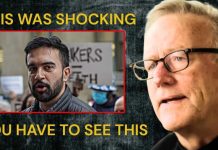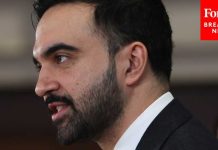
JFK’s first Black Secret Service agent Abraham Bolden revealed shocking testimony that drunk agents missed assassination threats and potentially covered up crucial evidence in the Kennedy assassination.
Key Takeaways
- Abraham Bolden, the first Black Secret Service agent on presidential detail personally hired by JFK, testified about systemic negligence in the agency before a Congressional committee.
- Bolden alleged Secret Service agents were frequently drunk on duty and ignored credible assassination threats in Chicago and Miami prior to Dallas.
- After reporting misconduct, Bolden faced retaliation through fabricated bribery charges, resulting in a six-year prison sentence before receiving a presidential pardon in 2022.
- His testimony suggests potential cover-ups in the JFK assassination, including missing medical documentation and deliberate negligence in presidential protection.
- Despite racism and professional challenges, including having a noose hung above his desk, Bolden persisted in documenting Secret Service failures and potential conspiracy.
A Patriot Silenced for Speaking Truth
Abraham Bolden made history as the first Black Secret Service agent assigned to a presidential detail when personally selected by President Kennedy in 1961. His recent testimony before a Congressional panel reviewing the JFK assassination has reignited questions about the official narrative of Kennedy’s death. Bolden painted a disturbing picture of an agency rife with negligence, racism, and potentially deliberate failures in protecting the president. His account suggests a level of institutional corruption that conservatives have long suspected existed within federal agencies operating without proper oversight.
“On June 6, 1961, I walked into history. I was assigned to the White House detail in Washington, DC to assist in protecting the life of the president. And I never met a more human and fair-minded person than President Kennedy,” Stated Abraham Bolden, the first Black Secret Service agent on presidential detail.
Bolden’s service was marked by blatant racism from fellow agents. While protecting a president who valued equal opportunity, Bolden faced degrading assignments and open hostility. He discovered a noose hung above his desk and overheard agents explicitly stating their unwillingness to protect Kennedy due to racial prejudices. This treatment escalated when Bolden attempted to report serious security lapses, including agents being intoxicated while on duty and the dismissal of credible assassination threats in Chicago and Miami that preceded the Dallas tragedy.
The “Chicago Plot” and Deliberate Negligence
Among the most alarming revelations in Bolden’s testimony was his description of what he called the “Chicago plot” – a credible assassination threat against Kennedy that was ignored by senior officials. This pattern of overlooking legitimate security concerns extended to Miami and ultimately to Dallas. Bolden’s testimony suggests that these weren’t merely oversights but potentially deliberate failures to provide adequate protection for the president, raising serious questions about whether elements within the government were complicit in Kennedy’s death.
“While some agents got the coveted spots inside the McCormick Place banquet room near the president, my assignment was to guard a basement restroom that had been set aside for Kennedy’s exclusive use.”
When Bolden attempted to report these security failures, the retaliation was swift and severe. He was charged with soliciting a bribe, tried twice after the first trial ended in a mistrial, and eventually convicted by an all-white jury despite a witness admitting to lying under pressure from the Deputy U.S. Attorney. This railroading of justice silenced a key whistleblower just as he was preparing to testify before the Warren Commission about Secret Service failures preceding Kennedy’s assassination.
Cover-Up and Missing Evidence
Bolden’s testimony highlighted disturbing inconsistencies in the official narrative surrounding Kennedy’s death. He pointed to missing medical documentation and autopsy images that would have provided crucial evidence about the trajectory of the bullets and the true nature of Kennedy’s wounds. These disappearances suggest a coordinated effort to control the narrative around the assassination. Bolden also alleged that the Secret Service covered up a missing badge incident and other irregularities that could have revealed negligence or complicity in the assassination.
“Very often, as you people know, justice takes a long time. Carry on, my brothers and sisters. Carry on this investigation. I truly thank you for giving me a chance to tell my story today because not too many years from now, the only thing in my pockets will be dirt. But the truth cannot die,” Stated Abraham Bolden, former Secret Service agent.
Bolden’s six-year imprisonment effectively silenced him during the critical period when the official narrative of Kennedy’s assassination was being established. Despite multiple attempts to have his conviction reviewed, Bolden had to wait until 2022 to receive a presidential pardon. During these decades, he documented his experiences in the book “The Echo from Dealey Plaza,” preserving evidence of Secret Service negligence and potential conspiracy for future generations to examine. His resilience in the face of injustice exemplifies the determination required to confront deep state corruption.
Legacy of Courage and Continued Fight for Truth
At 89 years old, Bolden’s testimony to the Congressional committee represented a long-overdue opportunity to share his experiences with official investigators. His account provides valuable context for understanding the institutional failures and possible conspiracies surrounding Kennedy’s assassination. Despite decades of efforts to silence him, Bolden’s persistence in seeking justice exemplifies the courage needed to stand against corrupt government agencies that operate without accountability, a struggle that continues in today’s political landscape.
“I kept waiting for someone in D.C. with some guts to clear this man, and it never happened. I started with Bill Clinton, then George W. Bush and Barack Obama. I didn’t write about Trump because I knew it wouldn’t do any good. Then Biden,” Stated Roosevelt Wilson, advocated for Bolden’s pardon.
Bolden’s testimony serves as a stark reminder of how government agencies can operate outside the bounds of accountability when proper oversight is lacking. The deliberate suppression of his evidence regarding Secret Service failures mirrors contemporary concerns about federal agencies weaponized against political opponents and whistleblowers. As the Congressional committee continues its reevaluation of the JFK assassination, Bolden’s account provides crucial evidence that may finally help Americans understand the full truth behind one of the most consequential events in our nation’s history.


















